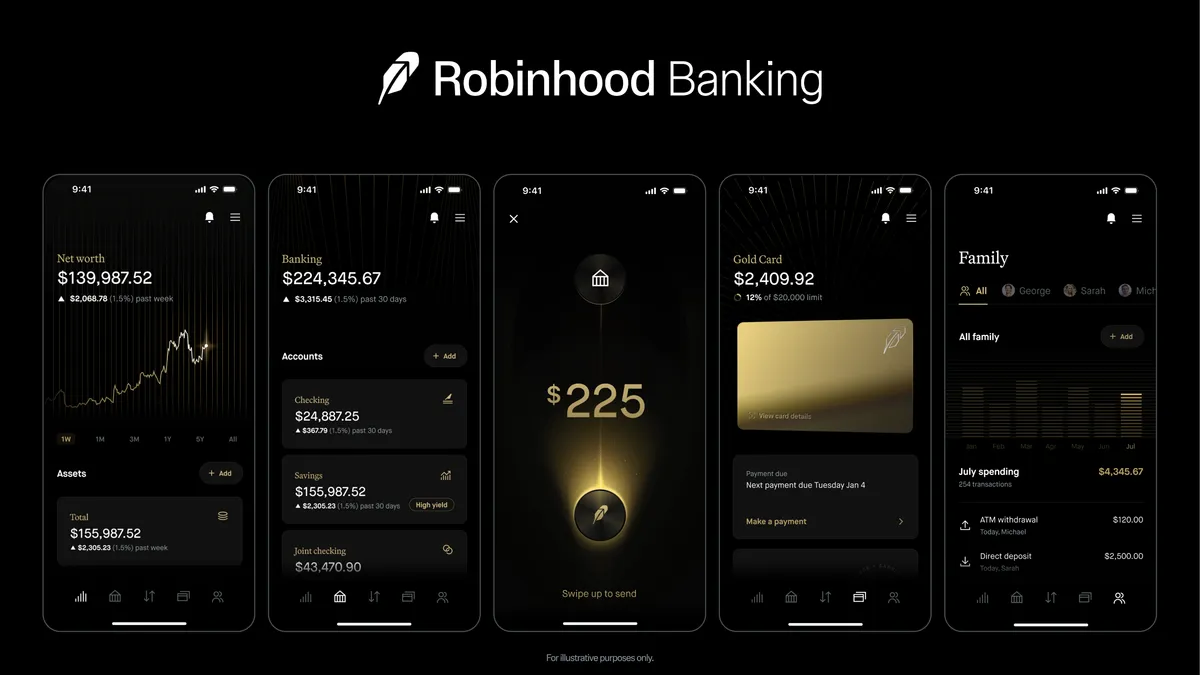Fintech companies are increasingly providing banking services to small- and medium-sized businesses (SMBs), ramping up competition with landed, established "big banks" and sparking a new wave of fintech innovation tailored for SMBs and dovetailing with an overall trend toward "banking-as-a-service" (BaaS).
In a new report, analytics firm CB Insights traced the expansion of SMB-focused fintech startups. According to the research firm, SMB-focused fintechs raised more than $4 billion in financing in 2019.
"Challenger banks raised over $3.71 billion across roughly 96 deals in 2019, up from $1.97 billion across 81 deals in 2018," CB Insights Senior Analyst Lindsay Davis told Banking Dive in an email. "The business-to-consumer (B2C) challenger banks have received the bulk of funding amidst rapid growth from the customer acquisition perspective, as spotlighted in CB Insights' latest State of Fintech Report. The concentration of funding in B2C highlights the gap in the business-to-business (B2B) segment, where we anticipate further growth in 2020."
There are now more than 140 fintech startups serving SMBs and entrepreneurs, addressing needs including bookkeeping, expense-tracking, insurance, invoicing, payment processing and payroll.
Tipalti and Stampli, for example, are two fintechs helping simplify accounts payable. Tipalti is a cloud-based, automated platform that "streamline(s) global payables workflow, while giving companies access to cross border payments, currency conversion, and payments."
Stampli is another cloud-based automated platform that manages and centralizes invoicing, and "integrates ERP systems like NetSuite, Sage Intacct, QuickBooks, and SAP," which are four other popular SMB services.
The implication and impact of SMB-focused fintechs is potentially huge: besides simplifying basic accounting tasks, these fintechs equip SMBs with the opportunity to grow on a global scale while ensuring efficiency and ease of access. If accounting and bookkeeping tasks are automated, SMBs can spend more time innovating and growing their business.
"The opportunity for SMB banking is large, as there are approximately 30 million small businesses in the United States, in addition to 16 million freelance and self-employed workers today," Davis said. "The global business and commercial banking market size is approximately $1.85 trillion, according to CB Insights’ Industry Analyst Consensus."
Fintech's SMB growth trajectory
Despite the explosion in SMB-focused fintechs, Davis said there’s still plenty of room for innovation in this space.
"Unlike the consumer side, we have not seen a true SMB or freelance-focused digital bank break out thus far," she said. "Currently, opening a business banking account is a universal pain point for SMBs and freelancers. Fintechs are now tackling this market, which big banks have been hesitant to cater to due to its risk and revenue potential."
As a result, fintechs are targeting corners of the banking market untouched by big banks.
Fintech startups Cogni, Joust, Rho and Tribal provide banking and financial account management services to SMBs, freelancers, and entrepreneurs — a historically risky market.
But big banks may now be changing their tune and following fintech’s lead. Banks are exploring SMB banking offerings in conjunction with big tech companies such as Amazon and Google, according to the report.
Amazon and Goldman Sachs are in talks to offer small business loans, presumably to compete with fintechs that are exploring lending to SMBs, like Shopify.
Davis told Banking Dive that Citi is partnering with Stanford Credit Union to help Google launch bank accounts, "and JPMorgan is building a Banking-as-a-Service utility targeted for big tech players that want to launch embedded financial products, such as Amazon."
“Big banks are capitalizing on banking infrastructure as a new revenue system,” Davis said. “Cross River is another in development, and BBVA’s BaaS is already live in the market with fintech customers. The competition between incumbents will heat up over winning big tech clients. Furthermore, this trend will be accelerated as more fintech startups abstract financial relationships and revenues away from banks.” BBVA is a U.S.-based entity with ties to Banco Bilbao Vizcaya Argentaria.
Some fintechs already in SMB lending — e.g. BlueVine and Kabbage — are now "moving into business banking and payments" to directly compete with big banks.
BlueVine now offers a digital dashboard to SMBs for managing debit cards and checking accounts, and last October, "Kabbage launched Kabbage Payments, a payment processing solution that helps SMBs get paid faster."
Future regulation
As the economy continues to heat up and interest rates stay low, SMBs will continue to grow in 2020, in turn fueling the SMB-focused fintech boom. But as fintechs continue to grow in this space, regulation looms.
Federal regulators have largely adopted a "hands off" approach to fintech, but may soon move toward regulation as fintechs blur the line with the banking industry.
In December 2019, for example, the Federal Reserve found that non-banks like fintechs are inconsistent in their lending terminology when lending to SMBs, and worried about the degree of data-sharing among non-bank SMB lenders, raising privacy and transparency concerns, which could lead to a more hardline approach to regulating fintechs.





















